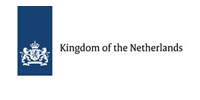Judicial Accountability Mechanism in Serbia 2012
Serbia's judicial system has struggled for years with serious problems, such as insufficient efficiency, a huge backlog of cases, widespread perceptions of corruption and political and other illicit influences.
Attempts to make changes date back to 2001. Measures taken at the time included increasing judges' salaries and establishing new bodies to ensure a greater role for the judiciary in disciplining its members, including the work of the Serbian Supreme Court's Supervisory Board and the High Personnel Council of the High Judicial Council. These institutions were in charge of examining objections to the work of the judge and proposing appropriate measures in cases where he did not act in accordance with the law. However, this system has not proved effective. Although there were often allegations of irregularities in the work of courts and judges, cases in which dismissal of judges and prosecutors was proposed were extremely rare. The perception of corruption in the judiciary according to all relevant public opinion polls remained high, which resulted in reduced public confidence in this branch of government.
Judicial reform in 2009 introduced several significant changes, including a new network of courts (eg abolition of municipal courts in smaller towns in favor of a smaller number of basic courts, establishment of the Supreme Court of Cassation and courts of special jurisdiction), establishment of new institutions - High Judicial Council as well as the autonomy of the judicial budget. However, the focus of the discussions was the issue of "general election" of judges, where one of the arguments why a large number of previous judges were not re-elected was their alleged incompetence and irregularities in their work.
This project tried to answer an interesting question - does the newly established system of justice in Serbia have the appropriate means and mechanisms to ensure the accountability of judges through a regular procedure, ie without the application of extraordinary measures? This was done through an analysis of the effectiveness of judges' accountability mechanisms and a commitment to their improvement.
The project is supported by the Balkan Fund for Democracy (BTF). The BTF was supported by the German Marshall Fund of the United States and the Embassy of the Kingdom of the Netherlands.
![]()

There are no articles in this category. If subcategories display on this page, they may have articles.

















